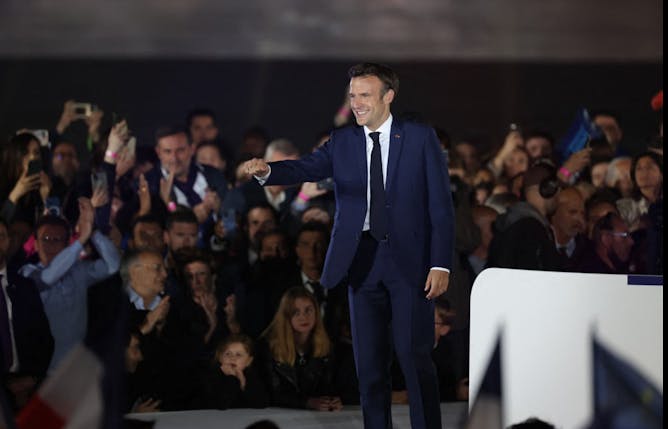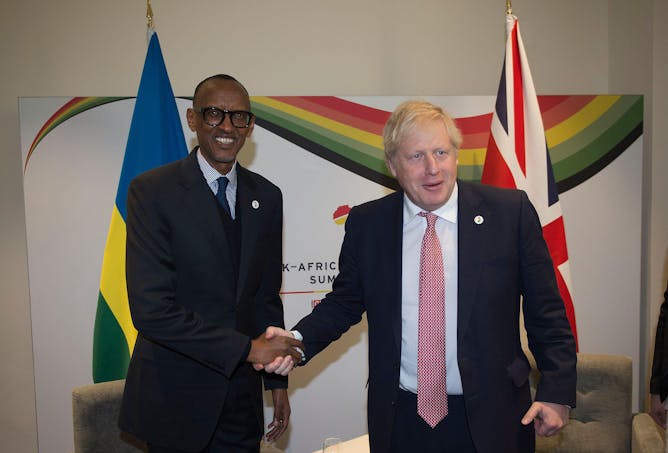|
Emmanuel Macron has been elected to a second term as President of France, leaving his far-right challenger Marine Le Pen more than 15 points behind. His victory came as a relief, particularly to France’s EU and Nato allies in the midst of the Russian invasion of Ukraine.
In his victory speech, Macron nevertheless acknowledged that France was deeply divided and that some of the electorate voted more to reject the far right than to support his programme. Abstention was very high (28%) showing the defiance of a large portion of the French people towards their political representatives. Polls showed that Macron had failed to address inequality and social issues with growing divides between French cities and suburban and rural areas.
Macron has now to face legislative elections in June, with a prospect of having a very divided National Assembly. Mathias Bernard analysis the outcome of the poll, and looks at what lies ahead for France.
|

Emmanuel Macron on his arrival at the Champ de Mars in Paris.
Thomas Coex/AFP
Mathias Bernard, Université Clermont Auvergne (UCA)
Emmanuel Macron’s success validates a strategy aimed at making him appear as the champion of the “progressives”, but it has only partially worked.
|
|
|
-
John Ciorciari, University of Michigan
Not all nations have joined in a united front against Russia’s invasion. The conflict and talk of a new Cold War could reignite the nonaligned movement.
-
Jaishree Raman, National Institute for Communicable Diseases
South Africa is one of the few malaria-endemic countries in Africa that did not see a major upsurge in malaria cases caused by COVID-related disruptions.
-
Iain Boyd, University of Colorado Boulder
Russia’s use of hypersonic missiles in Ukraine has put the weapons in the news. Next-generation versions under development could dramatically alter national and global security.
-
Sallek Yaks Musa, University of Jos
To end banditry, Nigeria first needs to tackle poverty, hunger and unemployment.
|
|

Alejandra Echeverri Ochoa, Stanford University; Jeffrey R. Smith, Princeton University
Tourism revenues account for almost 10% of Costa Rica’s gross domestic product. New research shows that charismatic wildlife is necessary but not sufficient to attract ecotourists.
|
|
|
-
Tim Newbold, UCL; Charlie Outhwaite, UCL
Insect numbers and species decline steeply where agriculture and habitat loss coincide. Preserving natural habitat can reduce losses up to nine-fold
-
Tricia C. Bruce, University of Notre Dame
A sociologist found in her research that many Americans who are opposed to abortion may nonetheless be willing to support a friend or family member seeking one.
-
Robert Lempert, Pardee RAND Graduate School; Elisabeth Gilmore, Carleton University
Solutions already exist. What’s holding humanity back is the will to get past the status quo and embrace innovation.
-
Tuugi Chuluun, Loyola University Maryland
Twitter adopted a so-called poison pill to make it much harder for Musk to take over the company.
|
|

Parvati Nair, Queen Mary University of London
Richer nations are increasingly looking to offshore their immigration processing and further their own economic and political interests at the same time.
|